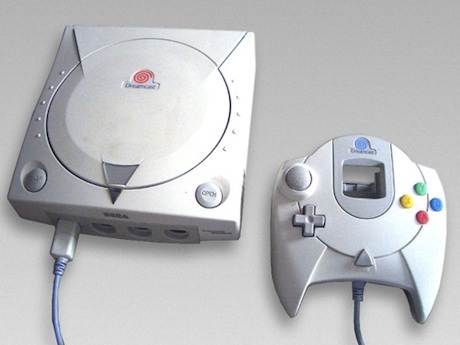Is Wii U the new Sega Dreamcast?

Nintendo's caught the imagination and attention of many attendees of this week's E3 Expo in Los Angeles with its announcement of the Wii U, a new console to replace its Wii system, due out some time in 2012. But is Wii U destined for success or failure? It may be a case of bad timing, much like Sega's final console, the Dreamcast.
Let me say at the outset that I don't think that Nintendo's hardware is headed for the scrapheap - I'm sure the Wii U will sell. I just wonder how well Wii U will do in the long run against the competition. If past is prologue, Nintendo may be pulling the trigger on the Wii U too soon as its competitors gear up to move console gaming dramatically forward, much in the same way that Sega offered up the Dreamcast but quickly saw it overshadowed by the PlayStation 2 and Xbox.

Before anyone gets the idea that I'm picking on Sega, let me just add that I'm an unabashed Dreamcast fanboy. I have two of them and play them regularly. And despite having every modern game system, my kids still love the Dreamcast too. But there's no question that Dreamcast stands out as a case of bad timing and reading the market wrong.
Novelty wears quickly
The Wii debuted to great fanfare, and Nintendo constrained supply for a good long time after it began shipping the system to give the appearance of a tremendous amount of demand. Nintendo also built the Wii using lower-priced components, so it made a profit from hardware sales almost immediately; unusual for console systems early in their production runs, even while Nintendo was able to sell the Wii for less than what its competitors charged for their systems.
But it's no secret that gamer interest in the Wii has flagged over time. Nintendo has reported sharply lower profits on Wii sales in recent years. Anecdotally, I've found that most families who buy Wiis end up like mine - using it quite a bit at first, then tiring of the kitschy and sometimes glitchy gameplay mechanics. Once the novelty of swinging the Wii Remote runs out, the Wii gathers dust, while other consoles get more use.
What's more, the Wii's graphics are weak - while Nintendo may have been smart to build the Wii cheap to maximize profits early, the system hasn't aged well at all compared to the PS3 or the Xbox 360. And third-party support for the Wii is tepid, at best. There are very few killer titles for the Wii, outside of Nintendo's own strong lineup.
The net result? Our family's Wii sees dramatically less use than either our Xbox 360 or even our PlayStation 3 (despite Sony's recent PlayStation Network woes). And I know many other families who are in the same boat.
Nintendo has laid out plans to release Wii U in 2012. Sony, meanwhile, has also indicated (admittedly vague) plans to produce a PlayStation 4 console at some point in the future. Microsoft has doubled down on the ever-popular Xbox 360 by focusing millions in development and marketing for its Kinect add-on.
Deeper and broader? How about online?
Nintendo's promising "deeper and broader" gameplay for Wii U than it was able to accomplish with Wii. During its E3 keynote, the company showed many "hardcore" games coming to Wii U, including graphically violent action games and high-impact sports titles. What Nintendo failed to do, however, was show us many exclusives or anything that seemed to separate the Wii from the competition.
The Wii U controller, of course, is the centerpiece of the experience, from everything that Nintendo's offered so far. It looks like a Wii Remote and an iPad had a baby - d-pad, analog thumbsticks, buttons and a 6.2-inch touchscreen display. The display can be used either as a game control surface, or as a replacement for a TV screen, if someone else wants to watch something on the TV while you're playing.
Nintendo isn't talking about the Wii U's online experience at all, however, and it's little wonder. If there's one play where Nintendo has been an abject failure compared to Microsoft and Sony, it's in developing an online community around its game systems.
Sure, Nintendo console and handheld users can trade information and even game items with one another using complicated ID tags, but you'll never find Wii users engaged in the same sort of frantic team-based cooperative or competitive play that you find on Xbox Live. Nintendo just hasn't figured out a way to make it work.
So Nintendo has its work cut out for it, to be sure. The Wii U looks pretty, but we're still a way off from getting our hands on one. And in between now and then, there's a holiday sales season where Nintendo's competitors are bound to eat its lunch. As word spreads that Nintendo is getting ready to make another console, consumer interest is bound to drop on the original Wii. Nintendo may get a bounce by playing with the Wii's price, but I don't expect miracles.
Now please excuse me while I fire up my Dreamcast and play another round of Shenmue. Ah, what could have been...!
More: